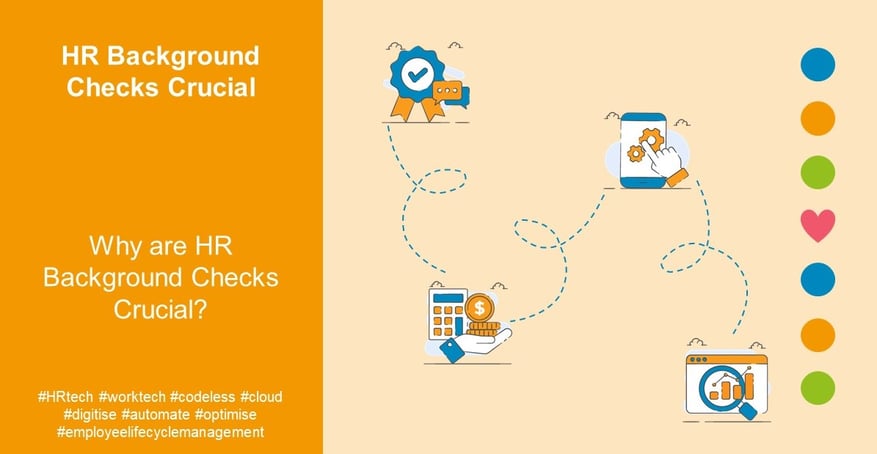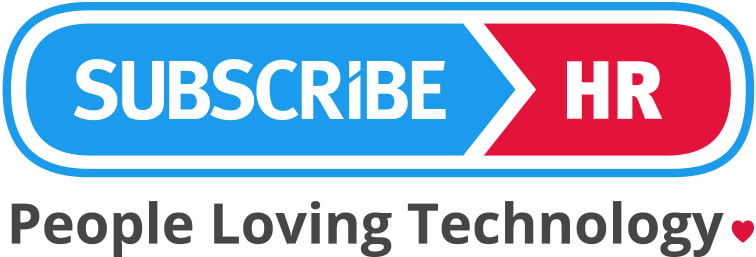Employee background checks are an essential part of the recruitment pre-screening process. They provide employers with the opportunity to verify a candidate’s criminal record, education, and employment history in order to confirm whether they’re fit for the role.
Ultimately, investing in the wrong people can cost your company a lot of time and money, and it can negatively impact your company culture, workplace safety, and reputation.
In this article, we’ll discuss the various types of background checks conducted by HR departments including:
-
Employment screening
-
Reference checks
-
VEVO checks
-
Working with Children checks
-
Police checks
-
Professional memberships checks
-
COVID checks
-
And more.
We'll highlight why background checks are crucial, what factors to consider when investigating an employee or potential employee’s past, and why having a background check policy in place is important to avoid legal issues arising from negligent hiring.
So without further ado, let’s find out why HR background checks are crucial. ⬇️
What are HR Background Checks? The Full Lowdown
In today’s competitive job market, it's essential for recruiters to ensure they’re hiring the best candidates for their open positions. This requires a comprehensive HR background check process that can verify the accuracy of a candidate’s resume, check their criminal history, and uncover any red flags. ⛳
The Steps Involved in HR Background Checks
Preparation
Before conducting an HR background check, employers need to obtain written consent from the candidate. You should also have a clear background check policy in place to avoid any potential legal issues in the future.
Application stage
During the application stage, you’ll typically start by verifying the candidate’s identity and previous addresses. This can include a VEVO check to confirm their right to work in Australia or a Working with Children Check if the position involves working with minors.
Verification stage
The verification stage involves checking the candidate’s employment history, including past job titles and responsibilities, reasons for leaving previous jobs, and work performance. You can also conduct reference checks to confirm the accuracy of the candidate's resume and obtain feedback from previous employers.
Assessment stage
The assessment stage typically means verifying the candidate’s education and qualifications, including certifications, diplomas, and degrees. You can also conduct criminal background check services to determine if the candidate has a criminal record.
Decision stage
In the final stage, you’ll make a decision based on the information gathered during the background check process. 🧑⚖️
Common Questions Asked During HR Background Checks

Work history
Questions about a candidate’s previous job titles, responsibilities, and performance to determine if they have the necessary skills and experience for the role.
References
This involves contacting the candidate’s references to confirm their employment history, obtaining feedback from previous employers, and verifying the accuracy of the candidate's resume.
Education and qualifications
Questions about a candidate’s education and qualifications to determine if they have the necessary certifications, diplomas, and degrees for the role.
Psych testing questions
Psych testing questions to determine a candidate’s skills and abilities, character, and personality. These questions may include situational questions or hypothetical scenarios.
Job performance
Questions about a candidate’s job performance, including their strengths, weaknesses, and areas for improvement.
Reason for leaving
Questions about why a candidate left their previous job to determine if there were any issues that may affect their ability to perform in the new role.
Skills and abilities
Questions about a candidate’s skills and abilities to determine if they have the necessary expertise for the role.
Character and personality
Questions about a candidate's character and personality to assess whether they have the right disposition for the job. This includes determining traits such as communication skills, adaptability, teamwork, leadership potential, and problem-solving abilities.
The Benefits of HR Background Checks

As an employer, you want to make sure that you are hiring the right people for your company. HR background checks during the recruitment process allow this. These checks give you a chance to verify a prospective candidate’s criminal record, education, and employment history to confirm their validity. Other benefits include 👇
Increased Employee Safety
One of the main benefits of HR background checks is the increased safety of your employees. These checks can help you identify any criminal history or past behaviour that may pose a risk to your workplace.
For example, if you are hiring someone to work with children, a Working with Children Check will confirm that they are suitable for the role and do not pose any risks to the children's safety. Similarly, a Police Check can help you determine if an applicant has a criminal history that could pose a threat to your workplace.
Protecting the Company’s Reputation
Another important benefit of HR background checks is protecting your company's reputation. Hiring an employee who turns out to be a poor fit for the role or who engages in inappropriate behaviour can damage your company's reputation and harm your relationship with customers, partners, and other stakeholders.
Compliance with Laws and Regulations
HR background checks can also help you ensure that you are complying with relevant laws and regulations.
For example, if you are hiring someone to work in a regulated industry, such as healthcare or finance, you may be required to conduct specific types of background checks to meet compliance requirements. Additionally, the COVID-19 pandemic has introduced new compliance requirements, such as COVID Checks, to ensure that employees are not exposed to the virus.
Improved Hiring Decisions
Finally, HR background checks can lead to improved hiring decisions. By verifying a candidate's employment history, education, and qualifications, you can ensure that they have the necessary skills and experience for the role. Similarly, reference checks can provide valuable insights into a candidate's strengths, weaknesses, and work style.
The HR Background Check Process

The Recruitment Background Check Process from A to Z
The HR background check process typically includes five stages:
-
Preparation: This involves identifying the types of background checks you need to conduct and obtaining the necessary information and consent from the candidate.
-
Application stage: This is when you collect information on the candidate's work history, education, and other relevant details.
-
Verification stage: This stage involves verifying the accuracy of the information provided by the candidate, such as contacting previous employers or educational institutions.
-
Assessment stage: This stage involves assessing the information gathered during the verification stage and making a determination about the candidate's suitability for the role.
-
Decision stage: This is the final stage where you make a decision about whether to offer the candidate the position.
Types of Background Checks
There are several types of background checks that employers can conduct, depending on the nature of the role and industry. These include:
-
Criminal background checks: These checks involve searching for criminal records at the local, state, or federal level.
-
Employment history checks: These checks verify a candidate's previous employment history, including job titles, dates of employment, and reasons for leaving.
-
Education and qualifications checks: These checks verify a candidate's educational qualifications, such as degrees or certifications.
-
Reference checks: These checks involve contacting a candidate's previous employers or other references to gather information about their work history and character.
-
Professional memberships checks: These checks verify a candidate's membership in professional organisations relevant to the role.
-
VEVO checks: These checks verify a candidate's right to work in Australia.
-
Working with Children Checks and Police Checks: These checks are mandatory for roles involving contact with vulnerable groups, such as children or the elderly.
Types of Information Checked
The information checked during a background check varies depending on the type of check being conducted. However, typical information checked includes:
-
Criminal record history
-
Employment history
-
Education and qualifications
-
Professional licenses and certifications
-
Credit history
-
Social media and online presence
-
Character and references
Tips for Conducting Effective Background Checks
When conducting HR background checks, we recommend you follow several best practices to ensure that the process is fair, accurate, and legally compliant. ✅
First of all, it is crucial to obtain the candidate's consent before conducting any checks. This can be done by providing the candidate with a disclosure and authorisation form that outlines the types of checks that will be conducted and the purpose for which the information will be used.
👉 Candidates must have a clear understanding of what they are consenting to and should be given an opportunity to ask questions before providing their consent.
It is also important to be consistent in the types of background checks conducted for all candidates. This means establishing clear criteria for which checks will be conducted and ensuring that all candidates are subject to the same standards. Consistency helps to avoid any potential claims of discrimination or bias in the hiring process.
When selecting providers for criminal and reference checks, it is essential to use reputable and reliable providers. This helps to ensure that the information obtained is accurate and legally obtained.
It is also important to keep the candidate informed throughout the process and allow them to explain any discrepancies or issues that may arise during the checks. This helps to avoid misunderstandings and ensures that candidates are given a fair chance to explain any issues that may arise.
Finally, it is important to adhere to relevant laws and regulations, including privacy laws. Employers must ensure that they are conducting background checks in a manner that is compliant with all applicable laws and regulations. This includes obtaining the necessary consents, following all required procedures for obtaining and using personal information and protecting the privacy of candidates throughout the process.
How to Conduct Effective Background Checks

The Importance of Reference Checks
Reference checks are an essential part of the background check process for potential employees. These checks allow hiring managers to verify the information provided by candidates, learn more about their past work experiences and gain insight into their character and work habits.
Employers use reference checks to gather information about a candidate from someone who has worked with them in the past, such as a former employer, coworker, or supervisor. These references can provide valuable information about a candidate's performance, work ethic, and attitude, which can help employers make more informed hiring decisions.
One of the primary benefits of reference checks is that they can help employers identify any red flags or concerns that may not be apparent from a candidate's resume or interview.
For example, a reference check may reveal that a candidate has a history of poor attendance, or that they struggled to work effectively in a team environment. This information can be valuable in helping employers determine whether a candidate is the right fit for the role and the organisation.
Tips for Effective Reference Checks
Preparation
Before conducting a reference check, it is essential to prepare adequately. Create a list of potential references for the candidate and prepare a set of questions that will help you evaluate the candidate's work experience and qualifications. Review the job description and responsibilities to guide your questions and ensure that they are specific and relevant to the role.
Contacting References
When you contact a reference, be sure to explain the purpose of the call and ask for their permission to use them as a reference. Confirm their willingness to provide a reference and their availability to speak with you at that moment or schedule a later call.
Conducting the Check
During the reference check, start with a general introduction and explanation of the role. Ask specific and relevant questions that will help you evaluate the candidate's work experience, skills, and character. Listen actively and take notes, and confirm the reference's relationship to the candidate.
Evaluating the Reference
After the reference check, evaluate the reference's responses. Look for consistency with the candidate's resume and interview and take note of any red flags or concerns. Consider the reference's overall tone and level of enthusiasm, as this can provide valuable insight into the candidate's work style and fit for the role.
Closing the Check
Thank the reference for their time and provide an opportunity for them to add any additional information. Confirm the reference's willingness to be contacted again in the future if necessary.
Documentation and Follow-Up
Document the reference check in detail and consider it as part of the overall evaluation process. Follow up on any concerns or red flags, and use the information you gather from the reference check to inform your hiring decision.
The Bottom Line: Why Conduct Reference Checks?
In conclusion, conducting reference checks is an important aspect of the HR background check process and should not be overlooked.
Reference checks provide employers with valuable insight into a candidate's past work experiences, job performance, and character, which can help in making informed hiring decisions. By following the tips outlined in this article, HR professionals can conduct effective reference checks that are consistent, informative, and compliant with relevant laws and regulations.
Ultimately, taking the time to conduct thorough background checks, including reference checks, is a wise investment for businesses as it can help ensure the safety of employees, protect the company's reputation, and improve overall hiring decisions. 👍
Need more HR info? Take a look at our free whitepaper on HR storytelling. It contains essential information on effective HR techniques that you can implement in your organisation. ✨

